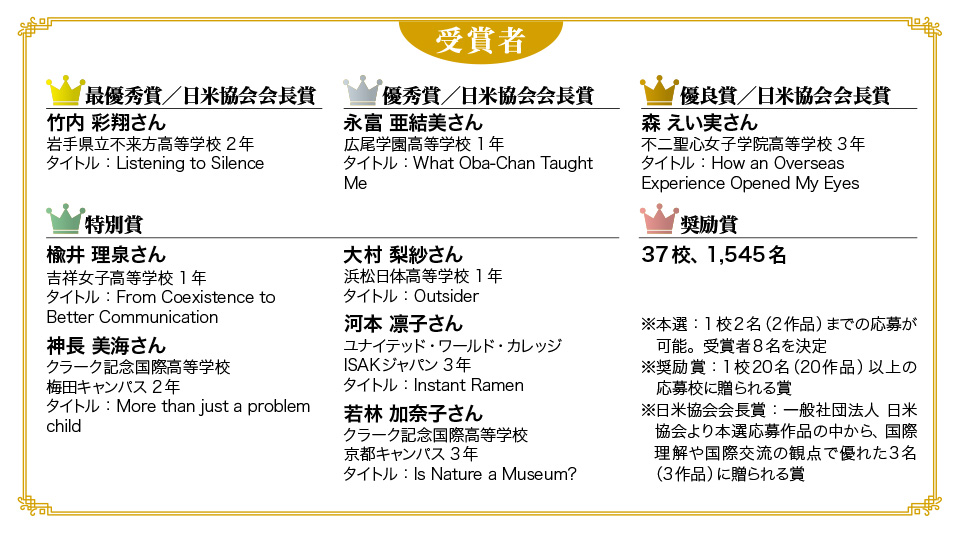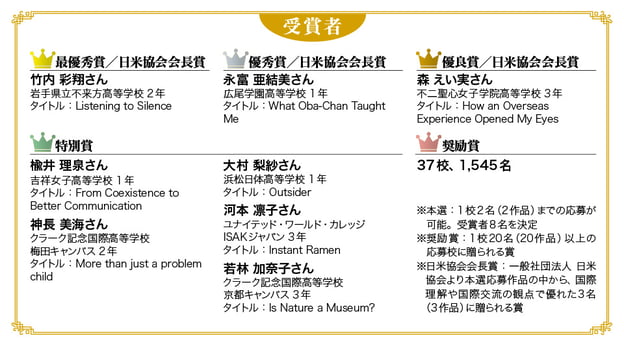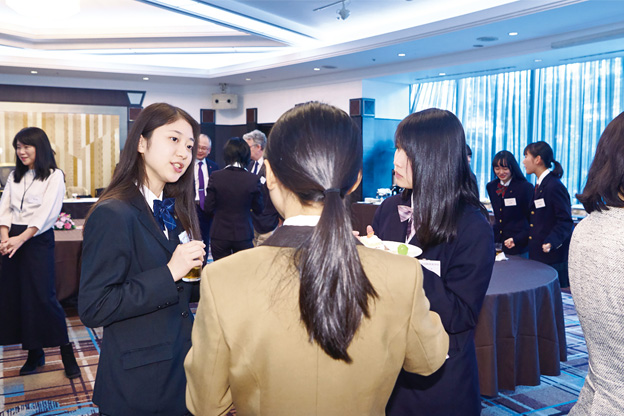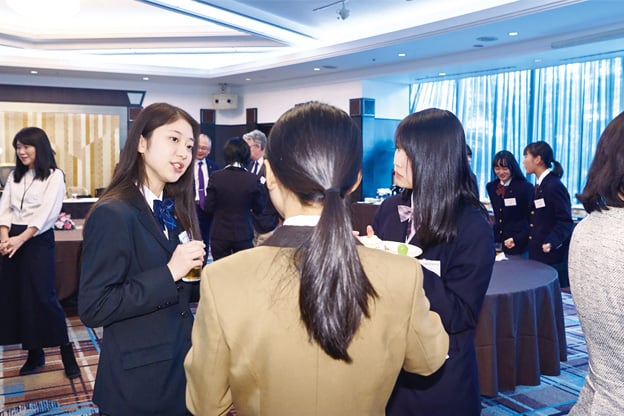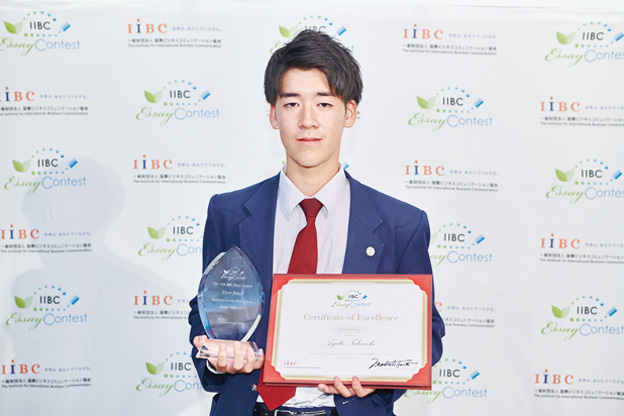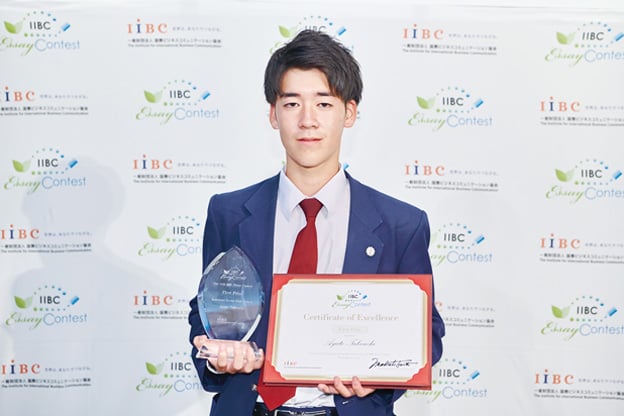第11回 IIBC エッセイコンテスト表彰式を開催将来に向け希望あふれる高校生を応援
自分の体験から得た異文化理解の大切さを英語で表現していただくため、IIBCは高校生を対象にした「IIBCエッセイコンテ スト」を、毎年開催しています。2019年に11回目を迎えた同コンテストでは、これまでと同様に「私を変えた身近な異文化体験」をテーマにした英語のエッセイを募集。本選に138校・205作品、奨励賞には37校・1,545作品と、多数ご応募いただきました。本選への応募数は過去最多となり、その中から8名の受賞者を決定。2019年11月9日(土)、ホテルニューオータニ(東京都千代田区)にて表彰式を開催し、受賞者のほか、審査員、受賞者を指導された先生、保護者の皆様など大勢の方にお集まりいただきました。
例年の作品では、海外に行った時の体験といった内容が主流でしたが、今回はそれにプラスして、日本の中での異文化や家族の中での異文化といった、身近な生活での異文化体験について書かれた作品が多く見られました。その中で、本選の最優秀賞に輝いたのが、聴覚に障がいがある両親との生活の中で、「聴く」ことの重要性を学んだことについて書かれた、岩手県立不来方高等学校 2年の竹内彩翔さんの作品です。竹内さんは「受賞によって自分の生き方が認められた気がしました。個人レベルでも国際レベルでも、『人の気持ちを聴くこと』を優先すれば、相互理解につながると考えており、今後は、英語に関わりながら、障がいのある方たちの助けになる仕事をしていきたいと思っています」と将来の夢を語ってくれました。(最優秀賞 竹内彩翔さんのコメントと受賞作品はこちら)
そのほかにも「今回の受賞は、教師になって社会に貢献したいという夢を、後押ししてくれるものだと思います」「これからも色んな人と出会い、異文化に触れ、世界で活躍できる人間になりたいと考えています」といった声が挙がるなど、受賞者たちは、将来への希望に満ちあふれていました。
これからもIIBCはコンテストを通じて、未来ある高校生を応援してまいります。
最優秀賞 竹内彩翔さんのコメント
苦労した点は、聴覚障害を持つ両親との生活を振り返り、「『音のある世界』と『音のない世界』の2つの世界を結ぶ橋になるためにどのようにならければならないのか?」について繰り返し自問自答したことです。自分が率直に思ったこと、自分がどう変わることができたか、「耳を傾けること」がどれだけ重要なことなのか、書くことによって整理できたと思います。気をつけた点は、”Listening to Silence”つまり「沈黙に耳を傾ける」というトピックと内容の関係性を深めることです。「耳を傾けること」の大切さを自分の変化を通して伝えられるように工夫しました。受賞の報告を聞いた時には、ただただ唖然とし、実感がわきませんでした。友人や先生方も褒めてくれ、自分の頑張りが認められた気がしました。私のエッセイに1人でも多くの方々が共感してくださると嬉しいです。最後に私にこのような機会を与えてくださったコンテストの関係者の皆様、サポートしてくれた不来方高校の松尾先生、僕を生んでくれた両親に深く感謝したいと思います。本当にありがとうございました。
最優秀賞 受賞作品
Listening to Silence
Every day I travel between two different worlds; one filled with abundant sounds and the other with no sound at all. Both worlds exist at the same time, but it always takes me a while to adjust when I go from one world into the other.
Both of my parents have a hearing impairment. They lost their hearing when they were very young, and so cannot respond immediately when their names are called. As such, they usually communicate with each other through sign language. Unlike my parents, I have no difficulty hearing, and I used to think that it would be really stressful to live such a life with abundant limitations. I am embarrassed to say that I am not very good at using sign language. Therefore, when I communicate with my parents, I try my best to speak slowly so that they can read my lips. Ever since I was young we have carried out our communication this way. However, as I grew older, my thoughts and ideas became more complicated and I found it harder to communicate what I really wanted to say to them. In failing to make myself understood, I grew increasingly frustrated. Gradually, I began to think that it was not only my parents who were handicapped. It seemed that I too, having been raised by physically disabled parents, was handicapped. This world of silence became a more and more uncomfortable place to live. I have lost count of how many times I have wished that they could listen to what I had to say. I was desperate to be heard.
One day, I asked my mother why she had chosen to marry my father who also has the same hearing disability. “Wouldn’t it be harder for you if your husband is also hearing impaired?” I asked her. Her answer was not at all what I expected. “That’s precisely why I married your father.” She replied, “We have the same disability and it helps us to understand each other naturally. Mutual understanding has been indispensable for us to overcome the hardships we face in our daily lives. Sad to say, it is very difficult, but not to say impossible, for people without impairments to understand our situation and our feelings perfectly.” That was the first time I really “listened” to my mother. I realized that I had never before tried to understand her true feelings about her disability. Instead, I treated the topic as a taboo and tried my best to avoid it. While I was so desperate to be heard, it was I who had refused to listen to their voices.
Since then, I have been trying to become a bridge to connect these two worlds. My parents cannot stay in their world of silence all the time; every so often, they have to cross the border and communicate with the inhabitants of the “normal” world. Of course, I have seen my parents struggle with miscommunication, but I have also seen many people who are willing to support and listen to them. Seeing such warm-hearted people helping my parents is a precious experience for me as well. It is a rare opportunity for me to feel the goodness in human relationships, which I would never have experienced if my parents were “normal.” I have come to believe that my parents’ disability is not a handicap but a great advantage.
Thanks to my parents, I am able to experience these two entirely different worlds every day. Thanks to them, I have learned the importance of listening to other people, both with and without sound. Thanks to them, I have come to think seriously about how to lower the physical and mental barriers between those with and without disabilities. What I have learned from my parents is true of cross-cultural relationships as well. People tend to focus on speaking, on how to express themselves logically and convincingly. However, in my opinion, we should prioritize listening instead, whether on a personal or international level. I am trying to become a person who can listen to people’s hearts regardless of differences in our language, culture or method of communication.
おすすめ記事
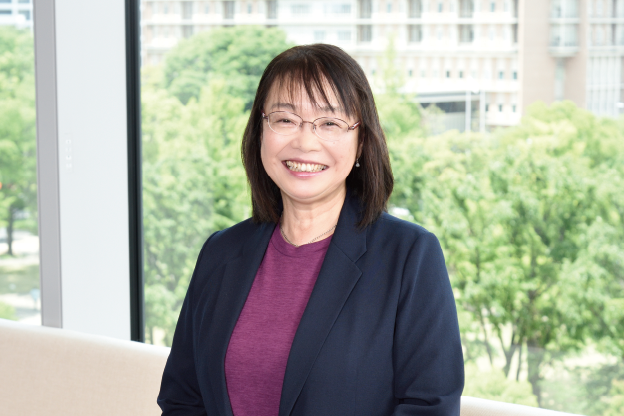
「完璧」ではなく「伝わる」を目指す!世界の共通語としての英語(ELF)とは?
瀧野 みゆきさん
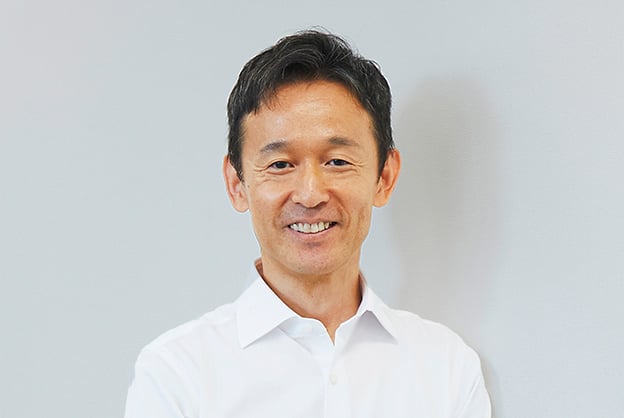
世界観を広げ、好奇心を促す英語学習が年を重ねても脳の成長を推進する
加齢医学研究所 教授
医師・医学博士
瀧 靖之氏

英語学習者にアンケートを実施!
なぜ英語を学ぶのか
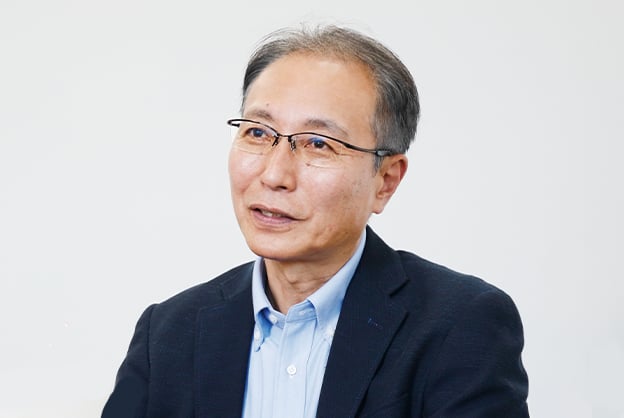
56歳で通訳を目指し定年後にその夢を実現
旅程管理主任者
櫻井 篤氏
